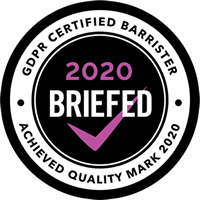10@12 Webinar Series : The Carillion directors disqualification case – aftermath and lessons
17th November 2023
In this webinar Andrew Thompson KC, Andrew Blake and Philip Morrison, who successfully defended the non-executive directors in the Carillion directors disqualification case, recently abandoned by the Secretary of State just before trial, consider where that abandonment leaves the law as to the role and duties of non-executive directors and the lessons to be learned generally.
Issues to be considered:
- What are directors disqualification proceedings and how do they work?
- How did this directors disqualification case come about? – the background to the case – the collapse, the parliamentary proceedings, the Official Receiver’s investigation, the pre-action process, other investigations and claims
- What were the allegations against the executive directors and what was the outcome in relation to them?
- What were the allegations made against the non-executive directors?
- The Secretary of State’s strict duty ‘test’ case. Does a strict duty to know the financial position of the company exist in law? Where does the abandonment of that case leave the law? What is a director’s true duty in this respect, as a matter of law?
- What was the significance of the auditor’s role in the allegations made and the defence?
- What does this case tell us about the risk of disqualification proceedings that directors face if their company goes under?
- What were the major tactical difficulties in defending the claim and how were they overcome?
- What went wrong in relation to the Claimant’s expert evidence? How can that be avoided? What does Carillion tell us about how to approach expert evidence?
- Has the Insolvency Service learned the lessons regarding procedural fairness in disqualification proceedings spelt out in the Kids Company case?



